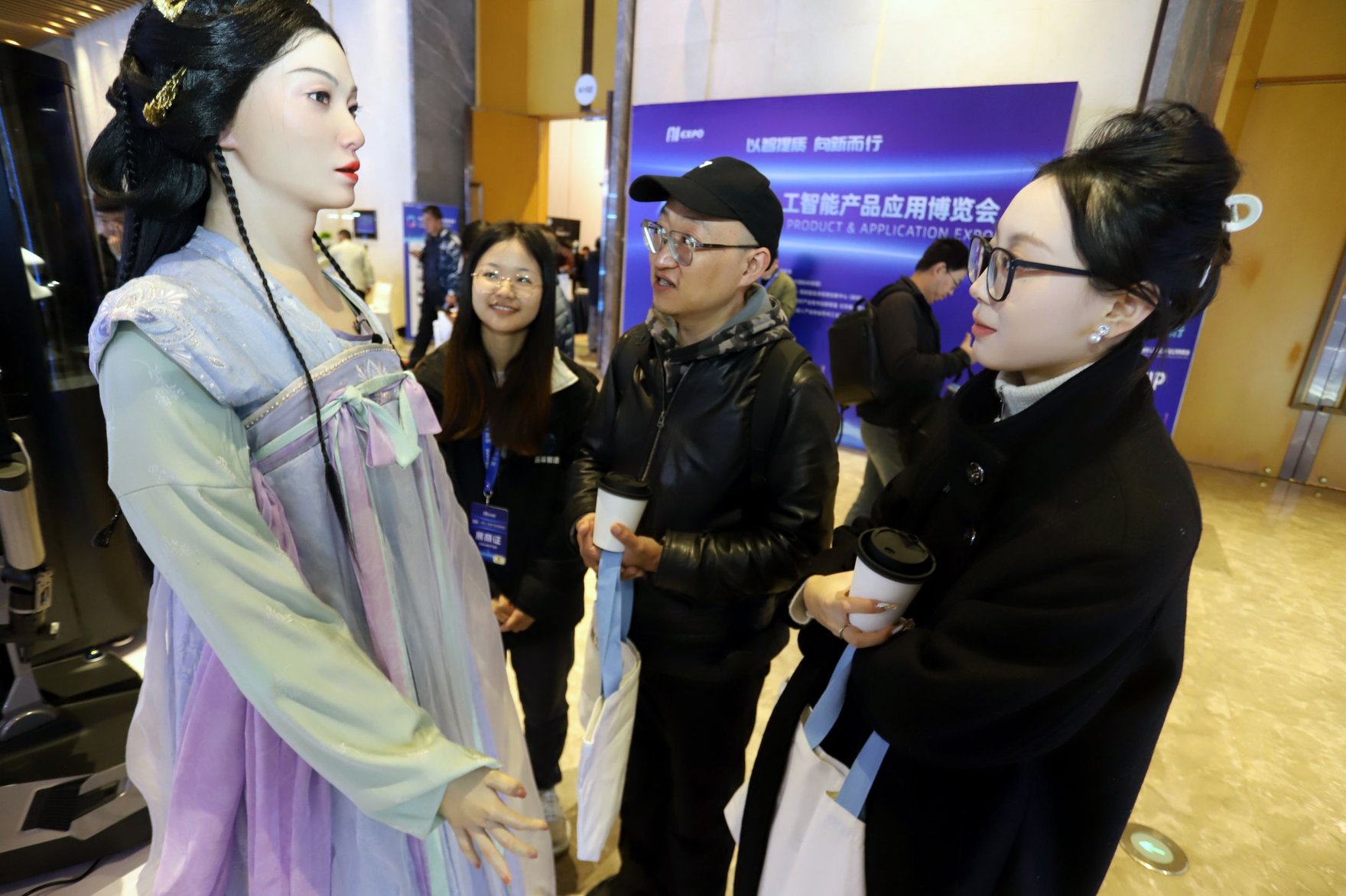The surgeon’s hands trembled slightly as she reached for the scalpel. Not from nerves — she had performed thousands of operations — but from an unfamiliar uncertainty. For months, her artificial intelligence (AI) surgical assistant had been making increasingly sophisticated recommendations, analyzing patient data with superhuman precision. Now, faced with an unexpected complication during a routine procedure, she found herself paralyzed by doubt. Had she forgotten how to trust her own clinical judgment?
This scenario, while hypothetical, illustrates a worrisome and largely invisible threat emerging in our AI-saturated world. As AI systems become more capable and ubiquitous, they risk eroding something fundamental to human experience — our capacity for independent thought, decision making and autonomous action.
This process is called agency decay, and it operates much like muscle atrophy. When we stop exercising our cognitive muscles and avoid activities such as critical thinking, problem solving and creative reasoning, they weaken imperceptibly. Agency decay is a critical concern for business leaders who must navigate an increasingly automated landscape while maintaining human oversight and strategic direction.
Understanding agency decay requires recognizing its progressive nature. The deterioration follows a predictable four-stage pattern, each progressively more difficult to reverse. Stage 1 begins with experimentation: driven by curiosity and convenience, we begin delegating simple tasks to AI systems. This feels empowering and efficient. Stage 2 sees integration, where AI becomes woven into our daily workflows for convenience. We start to feel slightly uncomfortable without these digital assistants, though we retain our underlying capabilities. Stage 3 represents reliance, marked by complacency where we’ve grown dependent on AI for complex decision making. Our skills begin to atrophy noticeably, though we may not recognize it. Finally, stage 4 manifests as addiction — a state of chosen blindness where we’ve lost the ability to function effectively without AI assistance, yet remain convinced of our autonomy.
The process unfolds so gradually that most people remain unaware of its progression. Research published in Cognitive Research: Principles and Implications warns that “artificial intelligence assistants might accelerate skill decay among experts and hinder skill acquisition among learners. Further,…AI assistants might also prevent experts and learners from recognizing these deleterious effects.” This creates a dangerous blind spot: we lose capabilities we don’t realize we’re losing, until it is too late.
Neural networks that aren’t regularly activated weaken through a process called synaptic pruning.
Consider the modern knowledge worker who relies on AI to draft emails, generate reports and analyze data. Each delegation seems rational — why spend time on routine tasks when AI can handle them more efficiently? Yet this efficiency comes at a hidden cost. The neural pathways that once fired when crafting persuasive arguments or synthesizing complex information begin to quiet. The brain, ever adaptive, reallocates resources away from underused functions.
Perhaps most insidiously, AI often creates an illusion of enhanced agency while actually diminishing it. Studies on AI dependency show how technological AI-based capabilities give people the impression that they have more power and autonomy, even as their actual decision-making authority contracts. A marketing executive using AI to optimize campaigns might feel more powerful than ever, armed with sophisticated analytics and automated A/B testing. Yet this expert may simultaneously lose the intuitive understanding of customer psychology that once guided her strategic thinking.
This paradox extends beyond individual users to entire organizations. Companies deploying AI across operations often discover that their human workforce has become dependent on algorithmic guidance. When systems fail or encounter novel situations outside their training parameters, employees find themselves ill-equipped to respond effectively. Research on AI over-reliance demonstrates how “overreliance on AI occurs when users accept AI-generated recommendations without question, leading to errors in task performance.” If the humans overseeing these systems have experienced agency decay, they may lack the critical judgment to intervene when an agentic AI system goes off track or produces an undesirable outcome.
The Neuroscience of AI Dependency
From a neuroscientific perspective, agency decay reflects the brain’s fundamental principle of efficiency. Neural networks that aren’t regularly activated weaken through a process called synaptic pruning. When AI systems consistently handle cognitive tasks we once performed ourselves, the corresponding brain regions receive less stimulation and gradually lose connectivity.
This isn’t merely about forgetting specific skills — it’s about losing meta-cognitive abilities. The capacity to recognize when we don’t know something, to question assumptions, to generate novel solutions to unprecedented problems. These higher-order thinking skills require constant exercise to maintain their sharpness.
Moreover, dependency on AI can alter our reward systems. The satisfaction of working through complex problems, the dopamine hit of creative breakthrough, the confidence that comes from overcoming challenges — these internal motivators diminish when external systems provide ready-made solutions. Research on AI’s impact on cognitive health suggests that “heavy dependence on AICs [AI chatbots], without commensurate cultivation of core cognitive skills, may result in unintended outcomes.” As such, we risk becoming cognitive consumers rather than creators.
The implications extend far beyond individual skill degradation. As society becomes increasingly dependent on AI systems, we create systemic vulnerabilities. Financial markets, health-care systems, transportation networks and communication infrastructure all rely heavily on algorithmic decision making. When these systems fail — as they inevitably will — our collective capacity to respond effectively may be severely compromised.
The concentration of AI capabilities within a few major technology companies compounds these risks. As more sectors delegate critical functions to AI systems controlled by external entities, democratic societies may find their autonomy constrained by algorithmic black boxes beyond their understanding or control. Pew Research Center researchers report that “experts are split about how much control people will retain over essential decision-making as digital systems and AI spread.”
The Path Forward
Recognizing agency decay is the first step toward addressing it. Organizations and individuals must develop cognitive fitness regimens — deliberate practices designed to maintain human agency in an AI-augmented world.
For businesses, this means implementing AI systems that enhance rather than replace human judgment. Instead of fully automated decision making, companies should design hybrid systems that require meaningful human input and oversight. Regular “manual mode” exercises, where employees practise core skills without AI assistance, can help maintain cognitive capabilities.
Educational institutions must evolve beyond teaching information consumption toward developing critical thinking, creativity and problem-solving skills that remain uniquely human. Students need to learn not just how to use AI tools, but when not to use them.
At the policy level, we need frameworks that preserve human agency and systematically invest in hybrid intelligence. These frameworks might include requirements for human oversight in high-stakes AI applications, transparency standards that allow users to understand and question algorithmic decisions, and the protection of the “right to human judgment” in essential services. Furthermore, this investment aims to integrate double literacy in schools and businesses. A holistic understanding of self and society, on the one hand, and a candid comprehension of AI’s underpinnings, on the other, might become decisive factors in the preservation of our cognitive autonomy.
The challenge of agency decay in the age of AI is not inevitable — it’s manageable. But only if we act with the same intentionality and urgency we would apply to any other threat to human well-being. Our cognitive autonomy, once lost, may prove far more difficult to recover than we imagine.




